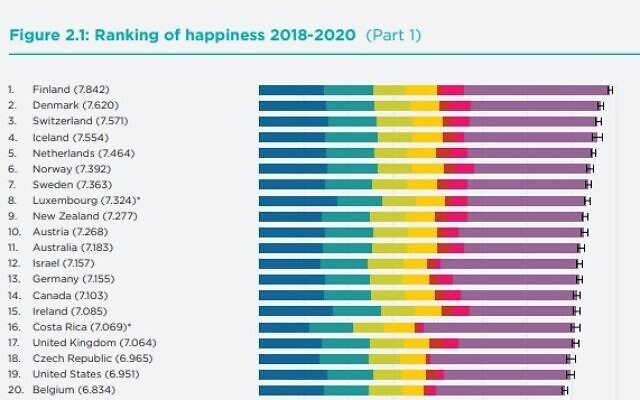According to the latest World Happiness Report (WHR), the Finnish are the happiest people in the world, and the people of Afghanistan are the most unhappy. Also, the top four countries on the list are from Northern Europe, with the Netherlands at number five. This is interesting because if these countries have the best life on the planet, why are they not flooded with immigrants? Is it because people from poor countries migrate to richer countries as a first step toward the countries that can offer the happiest life? Probably not, since the happiest countries are not that high up on the popularity scale. Apparently, what makes one person happy isn’t what makes another person happy. There is a big difference between what we perceive as happiness and what happiness really is.
There is no miracle here; it’s a psychological shift. Instead of focusing on our own desires, we need to focus on the desires of others, and they on ours. This is all it takes to change the world and make all of us, every person in the world, truly eternally happy. Then, we will not need reports to tell us whether or not we are happy; we would know for ourselves.
Michael Laitman
The WHR surveyed several factors in order to determine which nation is the happiest. Among them are GDP (a country’s economic output), income inequality, the freedom to make life choices, trust and the ability to count on others, confidence in public institutions, healthy life expectancy, well-being, and generosity. It seems plausible that such factors would play a big part in determining people’s happiness, but in truth, they overlook a key factor without which the whole project is meaningless: people’s expectations, namely what they perceive as happiness, as opposed to what the composers of the survey perceive it.
For example, if people aren’t bothered by income inequality, it will not make them happy if they have more than others, or unhappy if they have less. The same goes for trust: If a person settles for being able to trust his or her family members, and doesn’t expect anything more, then even if a country is ranked among the most corrupt in the world, it will not make the country’s people any more miserable. Apparently, the survey was conceived by Western minds and ranks countries’ happiness by what Western minds consider important for happiness. But Western minds aren’t the objective truth.
The truth is that there is no objective truth; you cannot compare people’s happiness—not between countries or between eras. That said, individually, people can determine if they are happy or not. We can measure our happiness, grade it, compare it to previous stages in our lives, and plan how to make ourselves happier because inside we know what makes us happy: Simply stated, we are happy when we get what we want. When our desires are satisfied, we feel happy. Or, perhaps I should rephrase it: We feel content.
Regrettably, we are never content, nor can we be. Our sages already said in the Midrash (Kohelet Rabbah): “One does not leave the world with half of one’s wishes in one’s hand, for one who has one hundred wants two hundred; one who has two hundred wants four hundred.” In other words, human nature itself denies our contentment. If we were content with what we had, we would not have had civilization because we would feel no urge to improve our lives. As a result, we wouldn’t have technology, and we wouldn’t have noble social ideals about what makes people happy. So by the WHR’s own standards, we wouldn’t be happy. But then, if we didn’t want those things that are said to make us happy in the first place, why would not having them make us unhappy?
The apparent catch is resolved if we understand not what makes us content, but what makes us truly happy. If you’ve ever observed a mother to a newborn baby, you know what it is: the pleasure of pleasing others! Even when the baby is sound asleep, tucked in her blanket and her belly full, her mother still watches her, needlessly fixes her blanket and smiles. No person is happier than a mother satisfying her baby’s needs.
If we strove to please the desires of others the way mothers strive to please their babies, and others strove to do the same for us, everyone would be happy. We would have a never ending pool of desires to please, everyone’s personal needs would always be met to the fullest, and everyone would always be happily pleasing others. There is truly no end to the happiness that such a state of mind can induce.
There is no miracle here; it’s a psychological shift. Instead of focusing on our own desires, we need to focus on the desires of others, and they on ours. This is all it takes to change the world and make all of us, every person in the world, truly eternally happy. Then, we will not need reports to tell us whether or not we are happy; we would know for ourselves.


